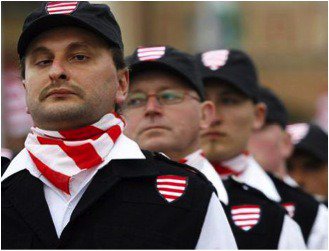Public Folklore
dal 23/9/2011 al 6/12/2011
Segnalato da
Tanja Gurke - Grazer Kunstverein
Eva Arnqvist
No Corruption
Roza El Hassan
Annika Eriksson
Andreas Fogarasi
Folk Archive
Jeremy Deller
Alan Kane
Jens Haaning
Martin Krenn
Eva Linder
Mari Laanemets
Killu Sukmit
Eva Labotkin
Christian Philipp Muller
Ilona Nemeth
Audrius Novickas
Joanna Rajkowska
R.E.P.
Kseniya Gnylytska
Nikita Kadan
Zhanna Kadyrova
Volodymyr Kuznetsov
Lada Nakonechna
Olesia Khomenko
Erzen Shkololli
Sean Snyder
Helene Sommer
Jaro Varga
23/9/2011
Public Folklore
Grazer Kunstverein, Graz
The project title Public Folklore designates the phenomenon or the attempt by current politics in Europe to stage this purported depiction of a folk character. There is of course a wide range of different causes, appearances and historical contexts for the staging of folklore. The art projects within Public Folklore therefore address a variety of different European phenomena of current folklorism(s) and look at continuities between political and touristic (commercial) productions.

Curated by Søren Grammel
Artists
Eva Arnqvist (S), No Corruption (founded by Roza El-Hassan, HU), Annika Eriksson (S), Andreas Fogarasi (A), Folk Archive, detail (by Jeremy Deller & Alan Kane, GB), Jens Haaning (DK), Martin Krenn (A), Eva Linder (S), Mari Laanemets & Killu Sukmit (EST), Eva Labotkin (EST), Christian Philipp Müller (CH), Ilona Németh (SK), Audrius Novickas (LT), Joanna Rajkowska (PL), R.E.P. / Kseniya Gnylytska, Nikita Kadan, Zhanna Kadyrova, Volodymyr Kuznetsov, Lada Nakonechna, Olesia Khomenko (UA), Erzen Shkololli (KOS), Sean Snyder (USA), Helene Sommer (N), Jaro Varga (SK)
Today, we face a constantly increasing tendency to national self-construction in culture and politics in almost every country in Europe. In conjunction with these events, the project queries the function of folklorism within the formation of political belief- and valuesystems.
Folklore is repeatedly instrumentalized in order to legitimize current politics. Among other things, territorial claims are derived from it, the exclusion of different ethnicities and languages legitimized, or a dominant culture erected.
The connection between folklorism and nationalism has already existed since the beginning. Johann Gottfried von Herder (born 1744), one of the first to promote collecting and preserving “folklore” in the German-speaking region, wanted to document the so-called “Volksgeist”, i.e. the soul or spirit of a people. He also already established a physiognomy between landscape and people. He presumed that the folk has a soul that forms its basic character (“Volksseele”).
The (nation-state) transformations in Europe of the 19th century resulted in an increased interest in the narratives of common folk culture on which identity was founded. Many of these kinds of narratives or their adapted copies are regaining more and more popularity today. Following from this, the project considers folklorism as a double construction.
In nationalist use, folklore is given the role of depicting the “soul” of a people. The project title Public Folklore designates the phenomenon or the attempt by current politics in Europe to stage this purported depiction of a folk character. There is of course a wide range of different causes, appearances and historical contexts for the staging of folklore.
The art projects within Public Folklore therefore address a variety of different European phenomena of current folklorism(s) and look at continuities between political and touristic (commercial) productions.
There are different approaches which range from more analytical or documentary to interventionist practice. Irony or “over-affirmation” can be means for this, as well as the attempt to “change” something. Questions are thus raised about gender issues, ethnic conflicts, the production of collective belief(s), the re-staging of history or the relationship between folklorism and a globalization process dominated by economic and postcolonial interests.
Events
"Die Parade"
A project by Annika Eriksson
Date: September 24, 2011, 5.30 pm
Meeting point: Grazer Kunstverein
"Wie das Eigene zum Fremden und wieder zum Eigenen wurde: Folklore im Stadtraum Graz"
Guided city walk with Angela Praßl
Dates: October 8, 2011, October 15, 2011 & November 5, 2011, each time 11.00 am – 1.30 pm
Meeting point: Courtyard Volkskundemuseum
The attendance is free. An answer is requested.
„Ach das Nationale ist immer so schön!“
Zur Erfindung der Nation
kunsttextwerk.LECTURE by Dr. Ulrich Becker (Chief curator Alte Galerie Graz)
Date: November 15, 2011, 7 pm
Location: Grazer Kunstverein
KIZ RoyalKino & Grazer Kunstverein proudly announce:
Short films "Public Folklore" presented by Søren Grammel
Date: November 22, 2011, 6 pm
Location: KIZ RoyalKino, Conrad-von-Hötzendorfstrasse 10
Opening September 24, 2011 at 5pm
Grazer Kunstverein
Burgergasse 4/II - Graz



